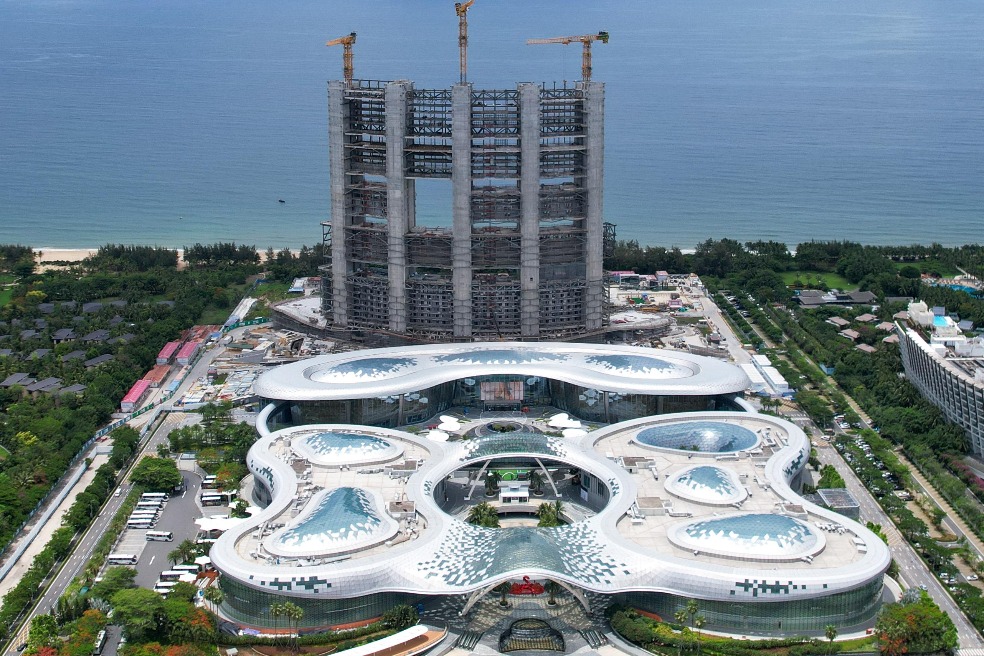UK's govt scrutinized after its first 100 days
Starmer looks to move on with pledges of reform despite mounting challenges

The United Kingdom's Labour Party government, led by Prime Minister Keir Starmer, reaches its first 100 days in office on Saturday, a period marked by a flurry of domestic and international activities but overshadowed by mounting challenges and a growing sense of unease.
While policy decisions so far have largely adhered to election manifesto pledges, including promises to enhance relationships with key trading allies, particularly those in Europe, there have been alleged missteps, including contentious decisions on pensioner benefits and public sector pay, as well as resignations and criticism over gifts and donations.
However, the issue that has dominated all others during this first trimester is how the new government will address the public spending deficit in the budget on Oct 30.
UK media assessments of the government's performance span the full spectrum of opinions, ranging from praise for decisive action, to concern over unfulfilled promises, as well as outright condemnation.
In his analysis for the center-left New Statesman magazine, political editor Andrew Marr put it bluntly.
"For Labour's friends, these have been miserable weeks. After an election campaign to celebrate, the next 100 days were anything but. There has been no catastrophe, just grubby, embarrassing stories," Marr wrote.
Appraisals from right-leaning media have been brutal. In its leading article, The Spectator magazine, which is known for promoting a conservative viewpoint, said: "The promise of dramatic change has been overshadowed by a series of errors, misjudgments, and scandals that one would associate more with an administration in its dying days than a government enjoying a fresh mandate, a massive majority and an absent opposition."
After bringing the Labour Party to power for the first time since 2010, Starmer first turned his attention to the international stage, flying to the United States for a NATO summit on July 9.
Soon after, on July 18, he hosted leaders at the European Political Community summit at Blenheim Palace, near Oxford, where he emphasized his government's dedication to improving relations with the European Union, post-Brexit.
He also unveiled a new strategy to combat illegal migration that will increase collaboration with European partners. The plan includes enhanced Europol involvement, new cooperation agreements, improved intelligence sharing, and 84 million pounds ($109.8 million) for projects in Africa and the Middle East to address the root causes of migration.
Planning reform, a key plank of the Labour Party's manifesto proposals to significantly increase the UK's GDP growth, was the focus of a series of summer announcements by Deputy Prime Minister Angela Rayner.
Chancellor of the Exchequer Rachel Reeves delivered her first announcement on public finances in late July, revealing what she described as a 22 billion pound "black hole" in the public purse, setting the stage for "tough decisions" to be made in the upcoming budget.
To address overspending, Reeves announced immediate cuts of 5.5 billion pounds this year and 8.1 billion pounds next year, while pledging to adhere to fiscal rules and prepare for a challenging budget on Oct 30.
At the 2024 Labour Party conference last month, Reeves promised an investment-focused budget, stating "growth is the challenge and investment is the solution" and that "it is time the Treasury moved on from just counting the costs of investments, to recognizing the benefits too".
Criticism and resignation
In recent weeks, Labour's senior figures, including Starmer, have faced criticism for accepting expensive gifts from party donors, a controversy that contrasts with their election campaign emphasis on "serving the country" and upholding high standards in public life.
The government encountered more tumult last week, when Sue Gray, Starmer's controversial chief of staff and former Partygate scandal investigator, resigned from her role following infighting and criticism over her salary and donations received.
Morgan McSweeney, her replacement, is said to be Starmer's most trusted political adviser and the architect of Labour's landmark electoral triumph.
"Starmer aims to use this appointment, along with a broader restructuring of his core team, to overcome the tumultuous beginning of his administration, which has resulted in a significant decline in his personal approval ratings," Politico reported.
Today's Top News
- Vice-premier to hold trade talks with US in Sweden
- Sovereignty over hydro project reaffirmed
- SCO unites on green growth, cultural bonds
- China plans to venture farther into deep space
- Hainan FTP's independent customs operation set to boost market vitality
- Sea of peace, friendship and cooperation, not an arena for Washington's geopolitical games






























